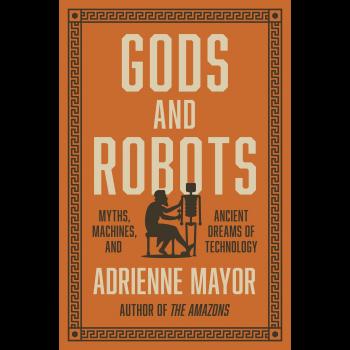This week’s podcast features Douglas Estes, a New Testament scholar like myself who also engages with Christianity, culture, and technology. His latest book is Braving the Future, and some of you may have seen the article in Christianity Today about it. This is going to be a two-parter – there’s too much interesting stuff to talk about at the intersection of Christian faith and future (as well as present) tech to fit in just one podcast episode!
I found it striking to learn that the publisher of the book, Herald Press, has a connection with the Mennonites. If you thought they were only focused on, and publishing, works that reflect Mennonite and Amish perspectives, you might want to give them and their catalog another look!
There are such contrasting views of recent as well as future technology in our society. Here are two contrasting perspectives from a recent article in the New York Times focused on the perspectives and practices of Silicon Valley insiders in their own families, which I mention in the podcast:
Athena Chavarria, who worked as an executive assistant at Facebook and is now at Mark Zuckerberg’s philanthropic arm, the Chan Zuckerberg Initiative, said: “I am convinced the devil lives in our phones and is wreaking havoc on our children.”
…
Frank Barbieri, a San Francisco-based executive at the start-up PebblePost that tracks online activity to send direct mail advertising, tries to limit his 5-year-old daughter’s screen time to Italian language content.
“We have friends who are screen abolitionists, and we have friends who are screen liberalists,” Mr. Barbieri said.
He had read studies on how learning a second language at a young age is good for the developing mind, so his daughter watches Italian-language movies and TV shows.
One professor responded to that article by advocating use of chalkboards. And then there was another New York Times article about humanity’s merge with robots:
Ethically speaking, we need to ask what new costs and inequalities the freedoms and augmentations of some may mean for others. We need to ask if we are willing to tolerate some inequality as part of the rollout process for a more fluid and interconnected world. Issues of privacy and the right to control (including to trade or sell) our personal information are vividly with us. Not knowing quite where we as protected selves stop and the world around us begins, law and policy struggle to decide if (for example) information stored on our phones is enough like information stored in our heads to warrant the same protections. Law, education and social policy currently lag behind many interacting waves of change. What is up for grabs is what we humans are, and what we will become.
In addition to Doug’s book, see also The Driver in the Driverless Car which I listened to recently as an audiobook, as well as Autonomy which I am currently listening to in my (not driverless) car. For more to listen to, there’s a podcast featuring Robert Geraci on the enchantment of technology.

















